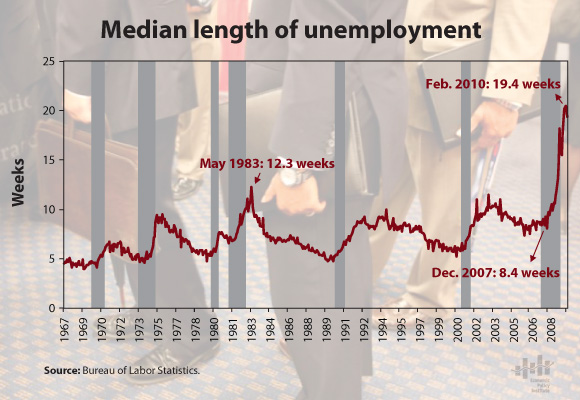Chart: Unemployed wait longer and longer for jobs
Tags: talent management
The current jobs crisis is unusually severe not only for the high level of unemployment, but also for the amount of time it is taking workers to find new jobs. Today, the median length of time a laid-off worker spends unemployed is almost five months, longer than any other time on record. The figure below tracks the median duration of unemployment since the Bureau of Labor Statistics began keeping records in 1967. The median 19.4 weeks that laid-off workers spent unemployed in February has more than doubled from a median of 8.4 weeks at the start of the recession in December 2007. Although it typically takes longer to find a job when jobs are scarce, past periods of high unemployment, such as 1983, corresponded to median unemployment spells of 9 to 12 weeks.

By contrast, the almost 20 weeks it is now taking unemployed workers to find jobs, means that many on the higher end of that range will exhaust the standard 26 weeks of unemployment benefits before they find work. Although Congress has passed several extensions of additional emergency benefits for the long-term unemployed, the latest extension passed earlier this month lasts for only 30 days. By the end of March, without another extension, 200,000 workers will lose their benefits each week.